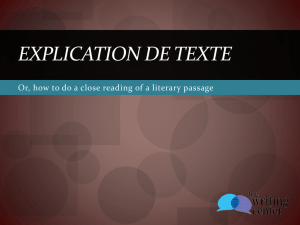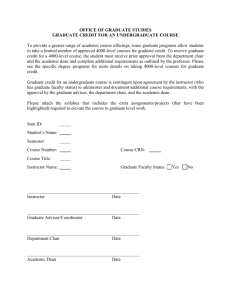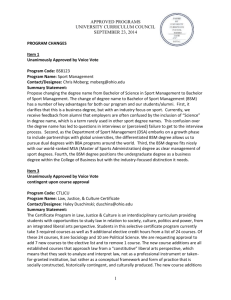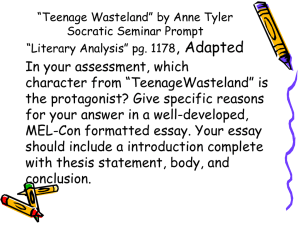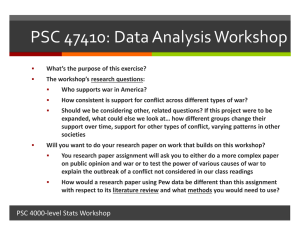Guidelines for Revising and Proposing Upper Division Courses
advertisement
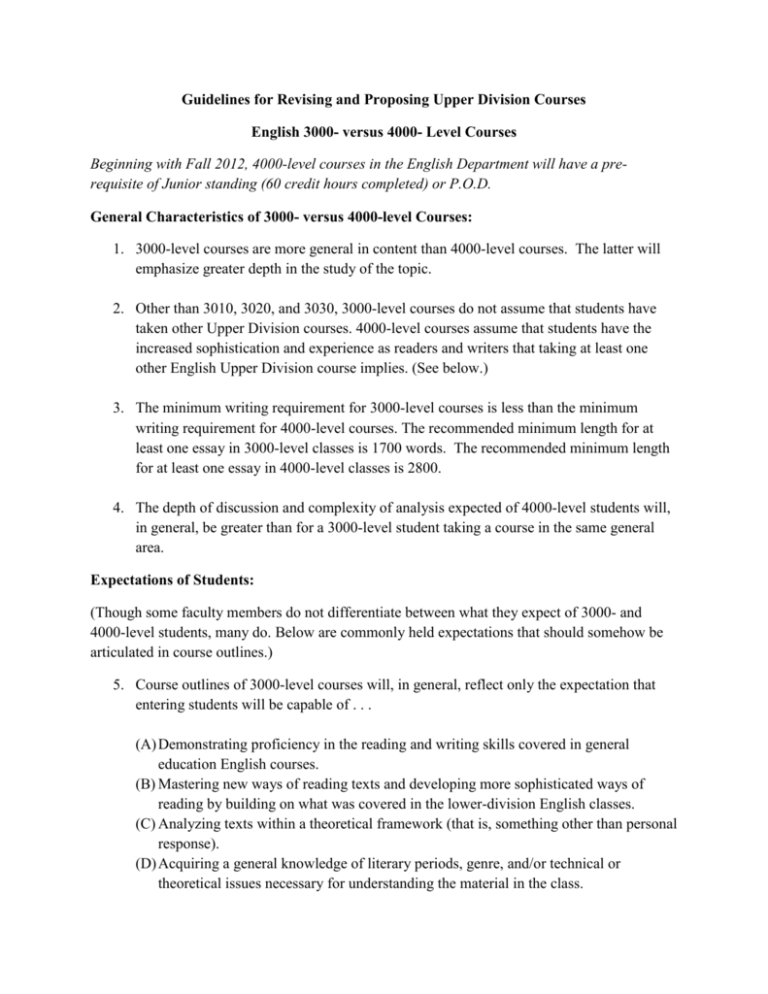
Guidelines for Revising and Proposing Upper Division Courses English 3000- versus 4000- Level Courses Beginning with Fall 2012, 4000-level courses in the English Department will have a prerequisite of Junior standing (60 credit hours completed) or P.O.D. General Characteristics of 3000- versus 4000-level Courses: 1. 3000-level courses are more general in content than 4000-level courses. The latter will emphasize greater depth in the study of the topic. 2. Other than 3010, 3020, and 3030, 3000-level courses do not assume that students have taken other Upper Division courses. 4000-level courses assume that students have the increased sophistication and experience as readers and writers that taking at least one other English Upper Division course implies. (See below.) 3. The minimum writing requirement for 3000-level courses is less than the minimum writing requirement for 4000-level courses. The recommended minimum length for at least one essay in 3000-level classes is 1700 words. The recommended minimum length for at least one essay in 4000-level classes is 2800. 4. The depth of discussion and complexity of analysis expected of 4000-level students will, in general, be greater than for a 3000-level student taking a course in the same general area. Expectations of Students: (Though some faculty members do not differentiate between what they expect of 3000- and 4000-level students, many do. Below are commonly held expectations that should somehow be articulated in course outlines.) 5. Course outlines of 3000-level courses will, in general, reflect only the expectation that entering students will be capable of . . . (A) Demonstrating proficiency in the reading and writing skills covered in general education English courses. (B) Mastering new ways of reading texts and developing more sophisticated ways of reading by building on what was covered in the lower-division English classes. (C) Analyzing texts within a theoretical framework (that is, something other than personal response). (D) Acquiring a general knowledge of literary periods, genre, and/or technical or theoretical issues necessary for understanding the material in the class. (E) Writing a well-developed, competently documented undergraduate level essay appropriate to the subject of the class. 6. Course outlines of 4000-level courses will, in general, reflect the expectation that entering students will be capable of … (A) Appreciating more than the surface meaning of a text. (B) Engaging with sources besides the primary text. (C) Analyzing texts within an increasingly advanced theoretical framework. (D) Mastering critical, theoretical, and/or technical language necessary for sophisticated discussions. (E) Building on knowledge from previous English classes to address course topics with some degree of depth. (F) Writing a well-developed, competently documented undergraduate level essay that shows the ability to analyze a topic in depth. 7. Both 3000- and 4000-level courses will require students to read carefully, analyze, and write about what is being covered in the class. Desired student learning outcomes and course goals will reflect the different expectations outlined in 7 and 8. 8. When a 4000-level course is in the same general area as a 3000-level course, the 4000level course will include (in the justification area of the course outline or proposal) something to explain how the course differs from the 3000-level course(s).
